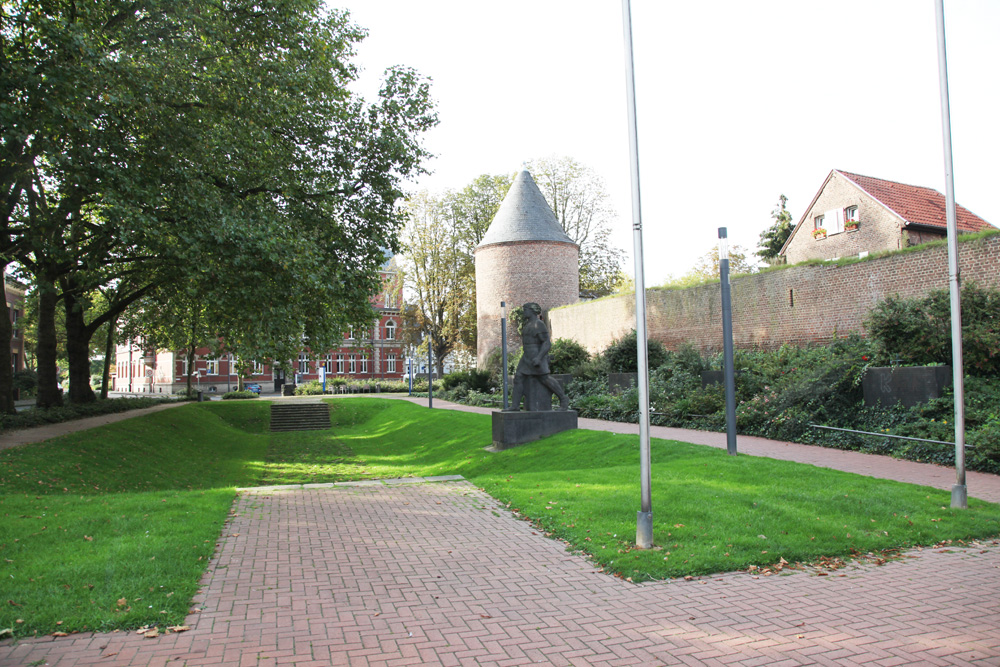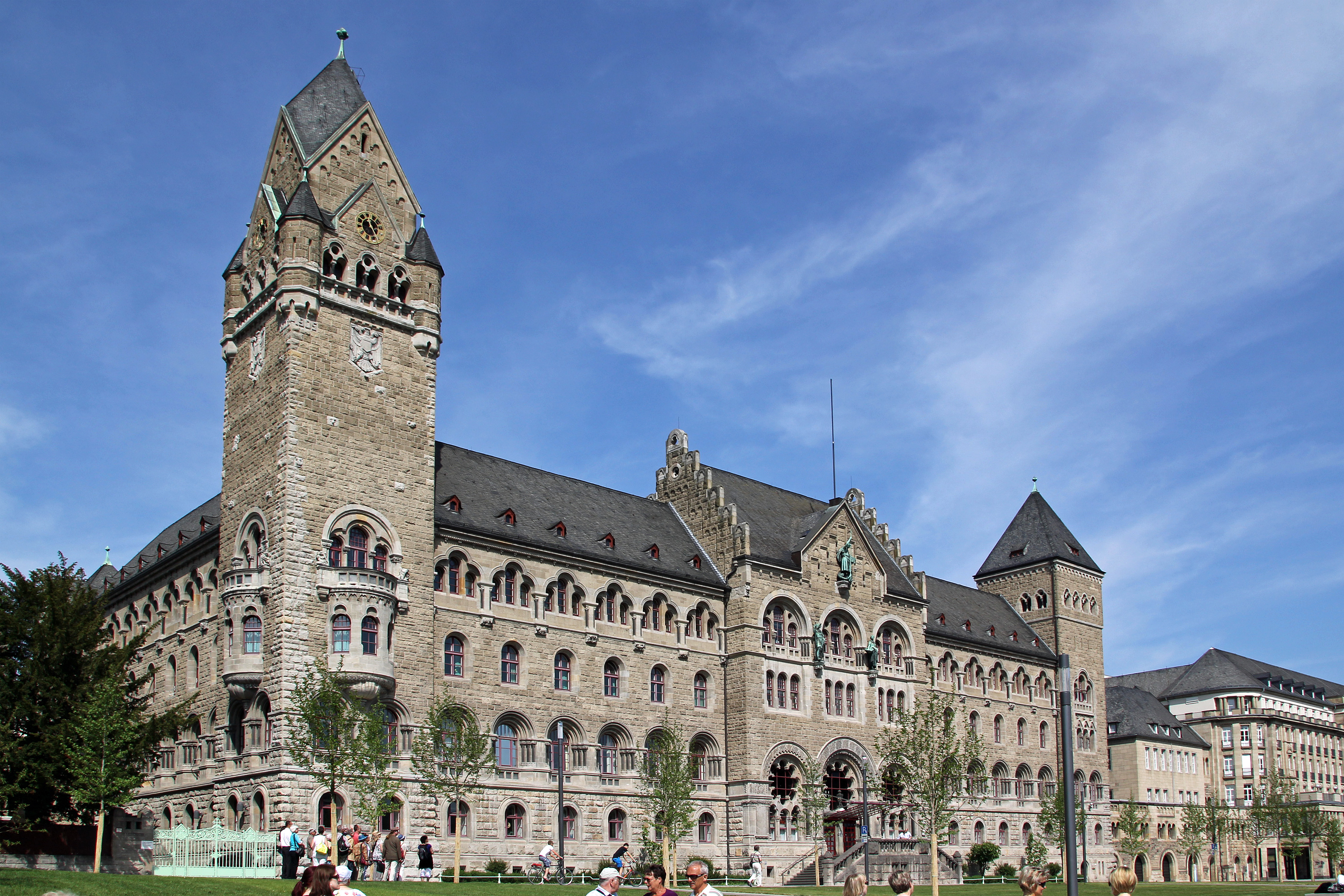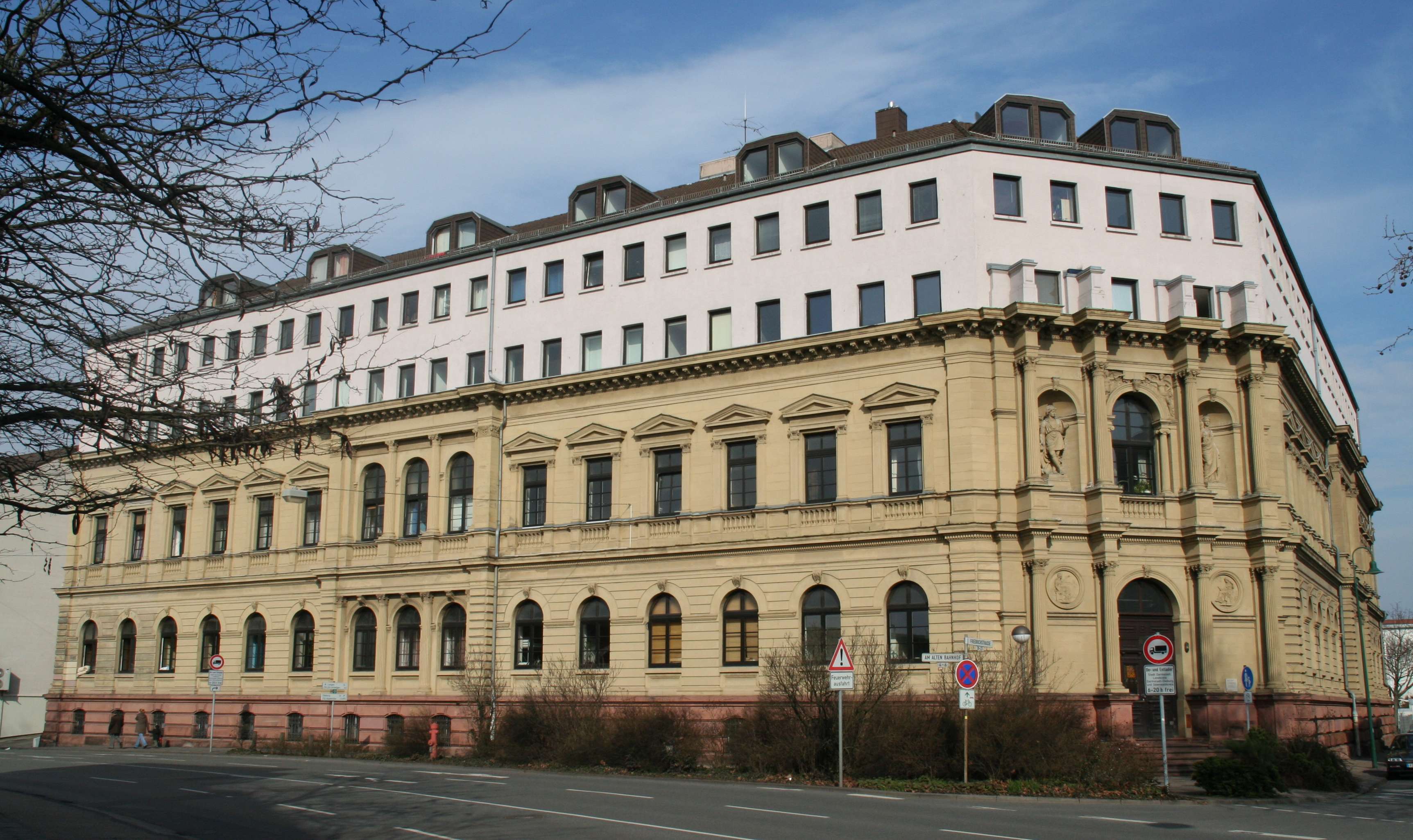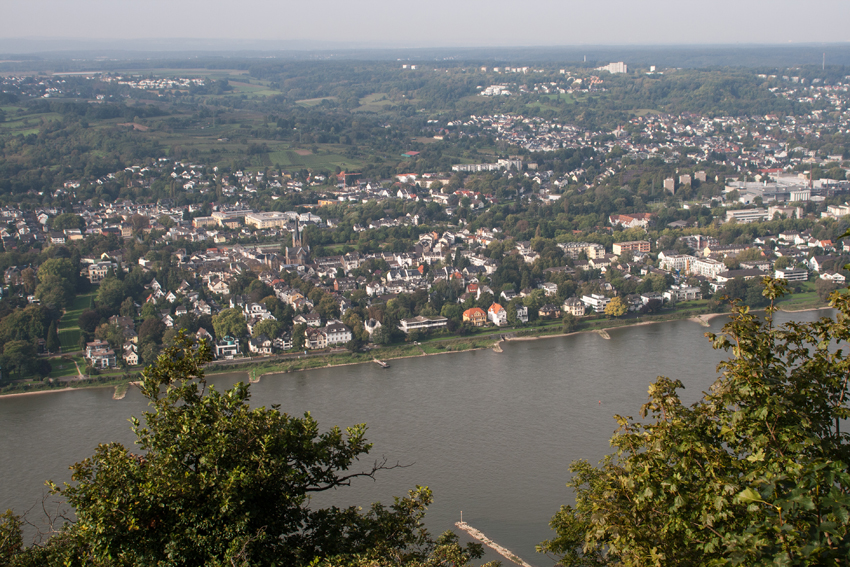|
Gustav Von Mevissen
Gustav Mevissen, after 1884 known as Gustav von Mevissen, (20 May 1815 – 13 August 1899), was a German businessman and politician. Mevissen was born in Dülken, Rhine Province. He started by investing in textile industry and later in railway construction and heavy industry. He founded numerous banks, including the Darmstädter Bank, and insurance companies. He is considered a pioneer of the German credit and insurance industry. As a politician he was a leading representative of Rhineland liberalism and he was a member of the Provincial Assembly of the Rhine Province, the Vereinigter Landtag, the Frankfurt Parliament. From 1866 he was a member of the Prussian House of Lords. He died in Bad Godesberg Bad Godesberg ( ksh, Bad Jodesbersch) is a borough ('' Stadtbezirk'') of Bonn, southern North Rhine-Westphalia, Germany. From 1949 to 1999, while Bonn was the capital of West Germany, most foreign embassies were in Bad Godesberg. Some buildings ar .... 1815 births 1899 dea ... [...More Info...] [...Related Items...] OR: [Wikipedia] [Google] [Baidu] |
Dülken
Dülken is a town located in the North Rhine-Westphalia state of Germany. It has a population of about 20,000. It is a borough of the municipality of Viersen. It received its town charter in 1364 thus being the oldest part of the municipality of Viersen. It lies in the administrative region of Düsseldorf. The river Nette having its source underground in the middle of the town rises near the town. The town motto is, "Gloria tibi Duelken", or "Glory to you, Duelken". History Mackenstein, a part of Dülken, is first mentioned 1135. Dülken itself appears in historic records 1210. The town was officially chartered as a city between 1352 and 1364. First settlements are dated to the time before the Roman Empire by tribes of Menapii and Eburones. Romans occupied the lower Rhineland and dislodged tribes that were not willing to cooperate until they finally withdrew in the second half of the 5th century. The Franks incurred the area as a County and ruled until about the 10th century. Due ... [...More Info...] [...Related Items...] OR: [Wikipedia] [Google] [Baidu] |
Rhine Province
The Rhine Province (german: Rheinprovinz), also known as Rhenish Prussia () or synonymous with the Rhineland (), was the westernmost province of the Kingdom of Prussia and the Free State of Prussia, within the German Reich, from 1822 to 1946. It was created from the provinces of the Lower Rhine and Jülich-Cleves-Berg. Its capital was Koblenz and in 1939 it had 8 million inhabitants. The Province of Hohenzollern was militarily associated with the Oberpräsident of the Rhine Province. The Rhine Province was bounded on the north by the Netherlands, on the east by the Prussian provinces of Westphalia and Hesse-Nassau, and the grand duchy of Hesse-Darmstadt, on the southeast by the Palatinate (a district of the Kingdom of Bavaria), on the south and southwest by Lorraine, and on the west by Luxembourg, Belgium and the Netherlands. The small exclave district of Wetzlar, wedged between the grand duchy states Hesse-Nassau and Hesse-Darmstadt was also part of the Rhine Province. The pr ... [...More Info...] [...Related Items...] OR: [Wikipedia] [Google] [Baidu] |
Darmstädter Und Nationalbank
The Darmstädter und Nationalbank (short form Danat-Bank) was a German bank. History The Darmstädter und Nationalbank was formed in 1922 from the merger of the Bank für Handel und Industrie (Darmstadt) and the Nationalbank für Deutschland. The ''Darmstädter Bank für Handel und Industrie'' (often called ''Darmstädter Bank'') was founded as the ''Bank für Handel und Industrie'' by Gustav von Mevissen and Abraham Oppenheim with a capital of 25 million guilders and modelled after the French bank Crédit Mobilier. It received a banking concession on 2 April 1853. downloaded on 1 April 2009 It was thus the second universal bank in Germany founded as a c ... [...More Info...] [...Related Items...] OR: [Wikipedia] [Google] [Baidu] |
Rhineland
The Rhineland (german: Rheinland; french: Rhénanie; nl, Rijnland; ksh, Rhingland; Latinised name: ''Rhenania'') is a loosely defined area of Western Germany along the Rhine, chiefly its middle section. Term Historically, the Rhinelands refers (physically speaking) to a loosely defined region embracing the land on the banks of the Rhine in Central Europe, which were settled by Ripuarian and Salian Franks and became part of Frankish Austrasia. In the High Middle Ages, numerous Imperial States along the river emerged from the former stem duchy of Lotharingia, without developing any common political or cultural identity. A "Rhineland" conceptualization can be traced to the period of the Holy Roman Empire from the sixteenth until the eighteenth centuries when the Empire's Imperial Estates (territories) were grouped into regional districts in charge of defence and judicial execution, known as Imperial Circles. Three of the ten circles through which the Rhine flowed referr ... [...More Info...] [...Related Items...] OR: [Wikipedia] [Google] [Baidu] |
Liberalism
Liberalism is a political and moral philosophy based on the rights of the individual, liberty, consent of the governed, political equality and equality before the law."political rationalism, hostility to autocracy, cultural distaste for conservatism and for tradition in general, tolerance, and ... individualism". John Dunn. ''Western Political Theory in the Face of the Future'' (1993). Cambridge University Press. . Liberals espouse various views depending on their understanding of these principles. However, they generally support private property, market economies, individual rights (including civil rights and human rights), liberal democracy, secularism, rule of law, economic and political freedom, freedom of speech, freedom of the press, freedom of assembly, and freedom of religion. Liberalism is frequently cited as the dominant ideology of modern times.Wolfe, p. 23.Adams, p. 11. Liberalism became a distinct movement in the Age of Enlightenment, gaining popularity ... [...More Info...] [...Related Items...] OR: [Wikipedia] [Google] [Baidu] |
Frankfurt Parliament
The Frankfurt Parliament (german: Frankfurter Nationalversammlung, literally ''Frankfurt National Assembly'') was the first freely elected parliament for all German states, including the German-populated areas of Austria-Hungary, elected on 1 May 1848 (see German federal election, 1848). The session was held from 18 May 1848 to 31 May 1849, in the Paulskirche at Frankfurt am Main. Its existence was both part of and the result of the "March Revolution" within the states of the German Confederation. After long and controversial debates, the assembly produced the so-called Frankfurt Constitution (''Paulskirchenverfassung'' or St. Paul's Church Constitution, officially the ''Verfassung des Deutschen Reiches'') which proclaimed a German Empire based on the principles of parliamentary democracy. This constitution fulfilled the main demands of the liberal and nationalist movements of the Vormärz and provided a foundation of basic rights, both of which stood in opposition to Metterni ... [...More Info...] [...Related Items...] OR: [Wikipedia] [Google] [Baidu] |
Prussian House Of Lords
The Prussian House of Lords (german: Preußisches Herrenhaus) in Berlin was the upper house of the Landtag of Prussia (german: Preußischer Landtag), the parliament of Prussia from 1850 to 1918. Together with the lower house, the House of Representatives (''Abgeordnetenhaus''), it formed the Prussian bicameral legislature. The building is now used as the seat of the German Bundesrat. Kingdom of Prussia Modeled on the House of Lords of the United Kingdom, the ''Herrenhaus'' was created following the 1848 revolution with the adoption of the Constitution of the Kingdom of Prussia imposed by King Frederick William IV on 31 January 1850. A member of the House of Lords was known as a ''pair'' (see also pairie), or officially as a ''member of the Prussian House of Lords'' (''Mitglieder des preußischen Herrenhauses'', or MdH). The House consisted of hereditary peers, life peers appointed by the King of Prussia, peers by virtue of position, representatives of cities and universitie ... [...More Info...] [...Related Items...] OR: [Wikipedia] [Google] [Baidu] |
Bad Godesberg
Bad Godesberg ( ksh, Bad Jodesbersch) is a borough ('' Stadtbezirk'') of Bonn, southern North Rhine-Westphalia, Germany. From 1949 to 1999, while Bonn was the capital of West Germany, most foreign embassies were in Bad Godesberg. Some buildings are still used as branch offices or consulates. Geography Bad Godesberg is located along the hills and cliffs of the west bank of the Rhine river, in west central Germany. Godesberg is also the name of the steep hill, of volcanic origin, on the top of which are the ruins of the Godesburg, a castle destroyed in 1583 during the Cologne War. History The following events occurred, per year: * 722 - First official record of the town, which was named after a nearby mountain, the Woudenesberg (later Godesberg), a basalt cone where the Ubii, a Germanic tribe, worshipped the god Wotan. * 1210 - On 15 October, Archbishop of Cologne Dietrich I lays the foundation stone of the Godesburg fortress on the Godesberg mountain. * 1583 - On 17 Decemb ... [...More Info...] [...Related Items...] OR: [Wikipedia] [Google] [Baidu] |
1815 Births
Events January * January 2 – Lord Byron marries Anna Isabella Milbanke in Seaham, county of Durham, England. * January 3 – Austria, Britain, and Bourbon-restored France form a secret defensive alliance treaty against Prussia and Russia. * January 8 – Battle of New Orleans: American forces led by Andrew Jackson defeat British forces led by Sir Edward Pakenham. American forces suffer around 60 casualties and the British lose about 2,000 (the battle lasts for about 30 minutes). * January 13 – War of 1812: British troops capture Fort Peter in St. Marys, Georgia, the only battle of the war to take place in the state. * January 15 – War of 1812: Capture of USS ''President'' – American frigate , commanded by Commodore Stephen Decatur, is captured by a squadron of four British frigates. February * February – The Hartford Convention arrives in Washington, D.C. * February 3 – The first commercial cheese factory is founded in S ... [...More Info...] [...Related Items...] OR: [Wikipedia] [Google] [Baidu] |
1899 Deaths
Events January 1899 * January 1 ** Spanish rule ends in Cuba, concluding 400 years of the Spanish Empire in the Americas. ** Queens and Staten Island become administratively part of New York City. * January 2 – ** Bolivia sets up a customs office in Puerto Alonso, leading to the Brazilian settlers there to declare the Republic of Acre in a revolt against Bolivian authorities. **The first part of the Jakarta Kota–Anyer Kidul railway on the island of Java is opened between Batavia Zuid ( Jakarta Kota) and Tangerang. * January 3 – Hungarian Prime Minister Dezső Bánffy fights an inconclusive duel with his bitter enemy in parliament, Horánszky Nándor. * January 4 – **U.S. President William McKinley's declaration of December 21, 1898, proclaiming a policy of benevolent assimilation of the Philippines as a United States territory, is announced in Manila by the U.S. commander, General Elwell Otis, and angers independence activists who had fought agai ... [...More Info...] [...Related Items...] OR: [Wikipedia] [Google] [Baidu] |








